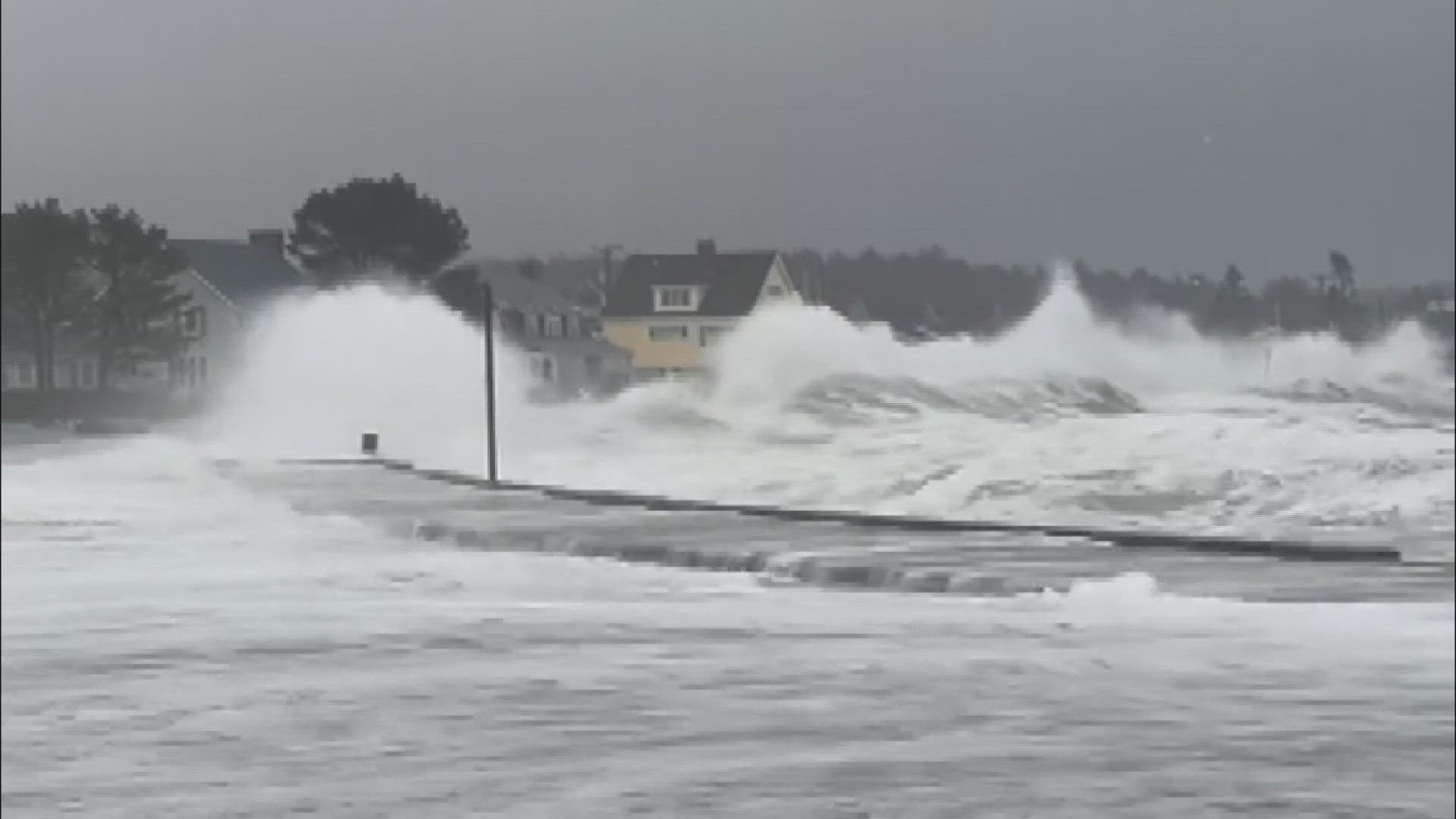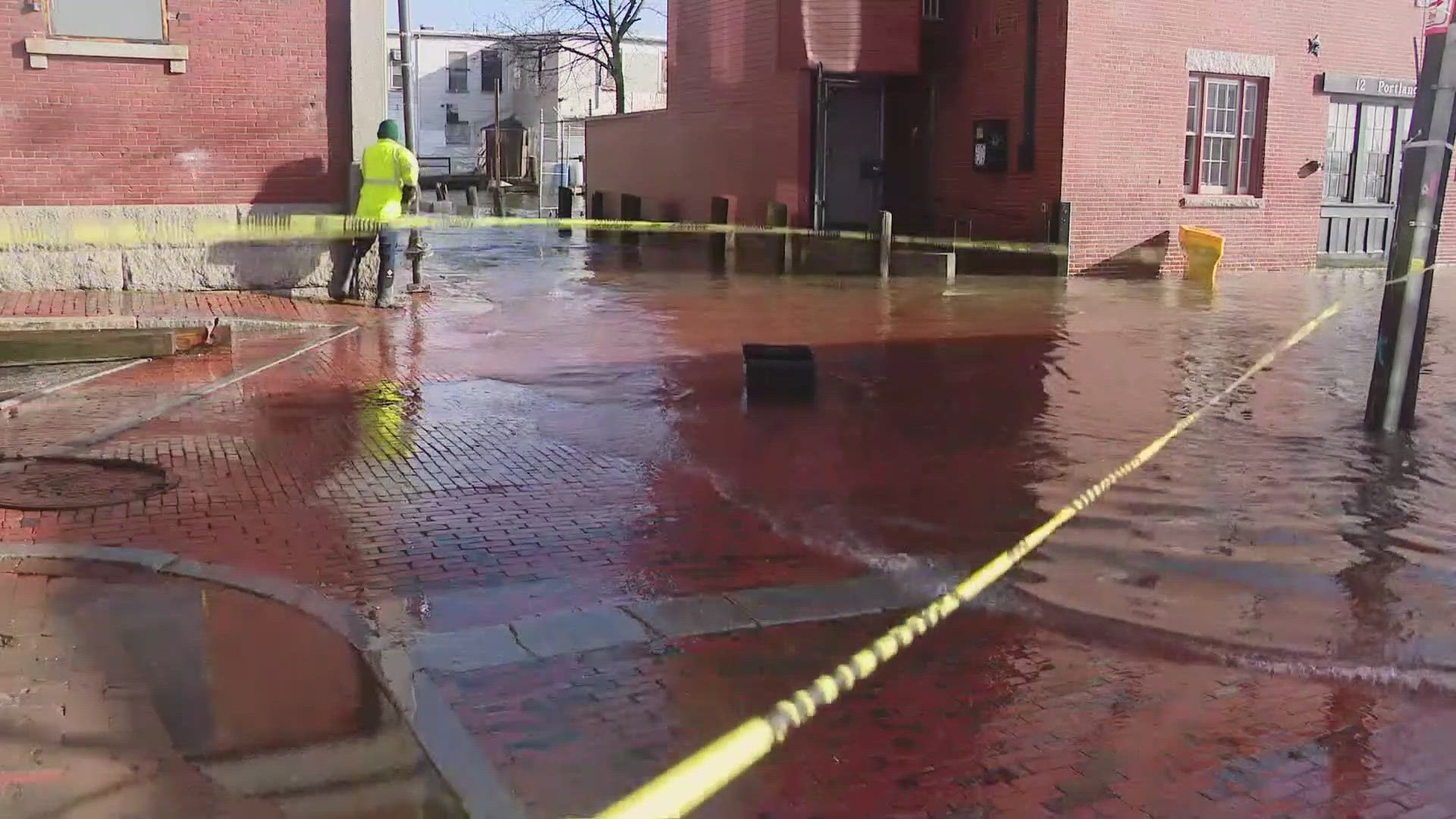AUGUSTA, Maine — The council tasked with preparing Maine for future climate change listened Tuesday to stories of towns hammered by recent storms.
After the latest in a series of powerful storms to hit the state, Gov. Janet Mills called on the Maine Climate Council to hold a special meeting, which played out on Jan. 23 at the University of Maine at Augusta.
In addition to the council members, leaders from a wide spectrum of impacted Maine towns spoke, and they also welcomed Julie Moore, Vermont’s secretary of its natural resources agency, whose state faced severe flooding of its own in 2023.
Before the meeting began, Stonington Town Manager Kathleen Billings, told NEWS CENTER Maine she had a story to share with the council. Billings explained how she has 250 fishing boats in her harbor and a lot of working waterfront that is now badly damaged. She said she and her engineers had done the right thing by working towards improving infrastructure to meet the latest science.
But these storms changed everything.
“The sheer force of all of these storms that we faced — the sea level rise, climate change, and severe storms, was way worse than what we anticipated,” Billings said. “So, I’m having to go back to the drawing board with my engineers to probably do something more, because the sea level rise and the associated storms, high tides, or whatever it is...is out-pacing us.”
The council was also in the middle of writing its latest four-year plan for the state, due in December. While doing that, they had to figure out what would make long-term impacts to produce resilient infrastructure, while immediately addressing the devastation still threatening the health, safety, and livelihoods of thousands of Mainers, from the western mountains to the Downeast fishing ports. And, of course, how can all of this be paid for? Congresswoman Chellie Pingree, D-ME1, joined the meeting after assessing damage in her home region and said she was eager for a disaster declaration that would bring FEMA funds.
“Facilities that are part of a municipality; beach erosion; some of those things that there are ways for us to work on, I think we’ll get funding for that,” Pingree elaborated. “What’s never quite clear is replacing second homes [and] commercial businesses. And our goal is to make sure that we’re finding funding for all of those things — particularly the commercial businesses and fishing-related businesses.”
Mills joined the meeting as well and told the council it was important to hear from them and impacted Mainers as she drafted her next budget proposal.
Hannah Pingree is co-chair of the council, and we asked her what tangible results Mainers could expect from this meeting. She said towns are already doing important work, and her job is to help them quickly get results.
“We have been making investments and upsizing culverts; investing in water treatment plants that have been flooded; thinking about how do we lift up roadways? How do we lift up wharves?” she said. “All of those kinds of infrastructure changes — they were made very real by the Dec. 18 and the January storm events. So, communities are already doing this work, but we want to support them in doing it more rapidly.”
The council still plans to convene for its regular meeting in March. They are also due to present their latest four-year update to the state’s climate plan in December.


